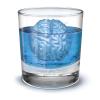
Lostfalco's Extensive Nootropic Experiments [Curated]
#1261
Posted 18 October 2013 - 09:19 AM
#1263
Posted 18 October 2013 - 06:19 PM
I'm really stuck in the middle as to how bad EMFs are - but to me this depends entirely on the source, dose, frequency, etc. For instance, Robert Becker and Andrew Marino have shown undoubtedly that transmission lines cause depression, suicide, hypertriglyceridemia, death to animal life, etc. But, does living near a high powered transmission line 24/7 for years equal using LEDs every other day (or less) for 2-20 minutes? Are there ways that we can simply 'shield' ourselves while being exposed, rather than pulling a Dr. Kruse and moving to a different country and shutting down your medical practice? I don't know, but I'd sure like to find out, haha. That being said, I guess operating under the assumption that the EMFs emitted form the LEDs are in fact harmful, I guess that's a plus for lasers.
#1264
Posted 18 October 2013 - 11:27 PM
#1265
Posted 19 October 2013 - 05:39 AM
So I took my emf meter, measured my 48 LED infrared CCTV and it exhibits the same amount of emf as a power line. Does anyone know the effective range of infrared light?
I am not buying it. Your meter measures frequencies 50--2000MHz. The current through the LEDs is DC (zero frequency), so its magnetic field is constant. The near infrared light is many orders of magnitude higher in frequency.
#1266
Posted 19 October 2013 - 05:38 PM
And the results had been profound !
- Feeling some increase in the STM ( short term memory )
- Experiencing an amazing improvements in the LTM! ( long term memory )
To be more specific : experiences that has happened to me 8 \7 years ago that
I have forgot & tried to recall several of times are all of a sudden emerge clearly!
for me, that is a game changer!
- my eye sight got slightly improved, for example in the night when I look at the street light
I see now significantly bigger halo then I use to see- strange indeed !
Noted, it's just the beginning of the way ! I'm looking forward for the possibilities that this therapy has to offer.
#1267
Posted 19 October 2013 - 07:49 PM
Firstly, I would like to thank everyone who has contributed to this glorious thread. It is truly representative of the vibrant community here at Longecity. The vibe here is incredible!
That being said, I believe it is finally time that I contributed to the movement happening here. My fiance' and I are about to begin a journey through the world of cognitive enhancement, and we couldn't be more excited about it. As I have been browsing this thread (among others) I couldn't help but notice the lack of data about individual's results. Several times in this thread I have seen a plea for more concrete data and empirical evidence. Of course, it is understandable. After all, who has the time and effort to log test scores and record notes to measure the efficacy of their self-experimentation?
Well... we do.
My fiance' and I have chosen to embark on a quest for brain optimization. We intend to log and record as much data as we possibly can in order to accurately observe the effects of the procedures we are going to do. We plan on starting with TULIP and proceeding from there.
This brings me to the intention of this post. What kind of data does this community want to see measured? We will both go through extensive testing prior to this experiment and gauge our progress as we go along. So far, this is what I have come up with (subject to change)
IQ test
Cambridge Brain Games
LSAT
Physical fitness ( Mile time, push-ups etc...We want to make sure that we don't become decrepit at the expense of mental health)
Dual N Back scores
We also hope to measure improvement (or lack thereof) in a “real world” subtext to see whether or not our experiment actually improves adaptability and problem solving from a baseline cognition standpoint. An example I had in mind: chess. I would play chess for a few hours and get a ranking (elo). Then, after a several months of experimentation, having not practiced chess specifically, see if I have become a better chess player simply due to an increased intelligence. I have other ideas for this but I am interested in your opinions.
Some things to consider:
I am 21, my fiance' is 25
We will be adopting a ketogenic diet as best as possible
We are both healthy individuals, with no prior health issues or ailments. (though my fiance' did struggle with weight in her high school years
I work as a tennis coach, and my fiance' as a server. This is the only reason an experiment like this is even feasible. We both have flexible hours and only work 20~30 hours a week.
We want to make this as transparent as possible. We are both fallible human beings prone to poor decision making and error. This is one of the main reasons it is paramount to get as many people involved as possible. Obviously safety will be our #1 concern. We will thoroughly research everything we put into our body and make sure we aren't zapping our brains into mush! We will start slow and ramp up as we see fit.
I believe we are in a revolutionary age, and any way that we can help improve the world is an avenue worth pursuing. So how can we make this experiment a successful one? What do you ( the community) want to see?
I am terribly sorry if this post doesn't belong here of if it in some way diminishes the awesome conversations taking place. I will make a new thread once I work out the details on exactly how to make this work. I'm thinking of titling it “Down the Rabbit Hole” (courtesy of my better half) hehe.
MAJOR shout-out to Lostfalco and the obscene amount of time and research he has put into this thread.
“Be the change you want to see in the world” - Mahatma Ghandi
-let's do this
TLDR: We are about to become guinea pigs. FOR SCIENCE!
#1268
Posted 19 October 2013 - 07:56 PM
#1269
Posted 19 October 2013 - 09:28 PM
Love your avatar by the way, Valentine!
Edited by chris106, 19 October 2013 - 09:32 PM.
#1270
Posted 19 October 2013 - 11:15 PM
I am Ender Q.'s fiancee. I look forward to embarking on this journey with my best friend. Hopefully we do not disappoint.
I'm Ender Q.'s fiancee, too! #@$!@#$! Endeeeer !!!
And now, seriously:
Welcome on board!
#1271
Posted 20 October 2013 - 12:46 AM
I would strongly encourage you to do your OWN research on ketosis, because you will see people say that ketosis is terrible, it's great, it's great but not for sports, it's this, that and the other. First things first - adaptation. Full adaptation doesn't happen for a long time, of course you will get 'used' to being in ketosis after a few weeks (or less), but that isn't the full adaptation. Peter Attia noticed a strong period of adaptation for about 12 weeks, and now, over a year later, he is noticing the decrease in power he experienced is coming back as his RQ rises and he uses fat at even extremely high intensities, and recycles lactate, pyruvate, and glycerol to create glycogen, along with high quality amino acids. Ben Greenfield is now doing the same.
Make sure to not limit calories and fat when in ketosis, you don't want to wreck your metabolism. Unless you're trying to lose a lot of weight, eat high calorie, high fat. Now, here's for some more direct pointers:
(1) Vitamin A + cholesterol + T3 is needed for sex steroid conversion; Get adequate vitamin A via liver, and don't skimp on cholesterol from things such as pork bellies
(2) There is no such thing as 'glucose deficiency', as Paul Jaminet claims, merely symptoms that seem like that due to MUCIN deficiency - get adequate Vitamin C and protein
(3) To maintain T3, either do small refeeds on carbs, or, maintain adequate iodine and selenium status
(4) Don't drink "bulk water" (w/ fluoride, chlorine, etc.)
(5) Try Cold Thermogenesis: Activates PGC-1alpha leading to brown fat and beige fat creation, along with mitochondrial biogenesis, as well as better beta-oxidation
(6) To my limited (but growing!) knowledge, ketosis should work better when using saturated, rather than unsaturated fats - the latter require two more enzymes to process and create things like ATP, NADH, FADH, etc. Sugar and saturated fat can create phospholipids and other fatty components for so called 'fluidity'
(7) Highly Intense Training, although very glycolytic, enhances your ability thereafter to burn fat as fuel; HIT is a leptin mimetic, and has especially profound results in a semi-fasted state
There's a lot more, but those are some things off the top of my head. If you wan I can send some studies and what not your way. Hope you and your fiance as great as an experience as possible!
#1272
Posted 20 October 2013 - 01:07 AM
Welcome aboard, guys! I hope the best for the both of you! Would either of you mind if I give some pointers real quick? Keep in mind, I'm younger than you guys - I will be 19 in November; but I have been digging through medical literature for a long time and self-experimenting for the last 20 months or so. What I'd really like to discuss is Ketosis.
I would strongly encourage you to do your OWN research on ketosis, because you will see people say that ketosis is terrible, it's great, it's great but not for sports, it's this, that and the other. First things first - adaptation. Full adaptation doesn't happen for a long time, of course you will get 'used' to being in ketosis after a few weeks (or less), but that isn't the full adaptation. Peter Attia noticed a strong period of adaptation for about 12 weeks, and now, over a year later, he is noticing the decrease in power he experienced is coming back as his RQ rises and he uses fat at even extremely high intensities, and recycles lactate, pyruvate, and glycerol to create glycogen, along with high quality amino acids. Ben Greenfield is now doing the same.
Make sure to not limit calories and fat when in ketosis, you don't want to wreck your metabolism. Unless you're trying to lose a lot of weight, eat high calorie, high fat. Now, here's for some more direct pointers:
(1) Vitamin A + cholesterol + T3 is needed for sex steroid conversion; Get adequate vitamin A via liver, and don't skimp on cholesterol from things such as pork bellies
(2) There is no such thing as 'glucose deficiency', as Paul Jaminet claims, merely symptoms that seem like that due to MUCIN deficiency - get adequate Vitamin C and protein
(3) To maintain T3, either do small refeeds on carbs, or, maintain adequate iodine and selenium status
(4) Don't drink "bulk water" (w/ fluoride, chlorine, etc.)
(5) Try Cold Thermogenesis: Activates PGC-1alpha leading to brown fat and beige fat creation, along with mitochondrial biogenesis, as well as better beta-oxidation
(6) To my limited (but growing!) knowledge, ketosis should work better when using saturated, rather than unsaturated fats - the latter require two more enzymes to process and create things like ATP, NADH, FADH, etc. Sugar and saturated fat can create phospholipids and other fatty components for so called 'fluidity'
(7) Highly Intense Training, although very glycolytic, enhances your ability thereafter to burn fat as fuel; HIT is a leptin mimetic, and has especially profound results in a semi-fasted state
There's a lot more, but those are some things off the top of my head. If you wan I can send some studies and what not your way. Hope you and your fiance as great as an experience as possible!
This is fantastic. Exactly the type of feedback we are looking for.
In regards to ketosis: We will definitely be doing our own "adaptation" of this diet. I agree with pretty much everything you have said, as it coincides with my own independent research. We will be drinking bulletproof coffee most mornings, which should at least give us a healthy dose of fat for the day. I am always open to suggestions though. Ideally, what would a perfect breakfast/lung/dinner look like? (or even 6 meals a day. like I mentioned previously, we can be flexible) We will try our best to make sure that we are getting our vitamins as well. Any suggestion for a multivitamin? I was thinking of taking BPcoffee, fish oil, Vitamin D and a multivitamin, with the potential of adding creatine in the future. From the rudimentary reading that I've done, it seems that following an epi-paleo hierarchy of foods (emphasis on shellfish, seafood and grass fed meets with a ton of veggies/fruits in season) will yield the best results. Addressing your 6th point, I can definitely see the reasoning here. Obviously since TULIP is focusing on the mitochondria, and thus the synthesis and production of ATP, phospholipids are going to be essential.
Addressing point 7, I am in the field of professional training, so it is part of my job to do high intensity training
About (4) Could you elaborate? I don't quite understand the implications of this.
Thanks for your feedback. I am definitely new to nutrition (at least relatively speaking), and want to learn as much as possible. You may be 19, but as far as I'm concerned you are far ahead of me in this area. Therefore, I respect your opinions. I have been reading most of your posts and can definitely tell that you value research and thoroughness (that's a word?), so I won't take what you say lightly! Also, definitely send the studies my way. After all, that's the whole point! (hopefully I become a lot better at understanding them as the experiment goes on
#1273
Posted 20 October 2013 - 02:33 AM
Fish Oil - ehhh, the largest reviews on fish oil supplementation that lasted YEARS, have shown NO positive impact other than skewing their ratio of o3/o6, no fat loss, no benefits to blood platelets/plaque, lipoprotein particles, tau proteins, etc. Nothing! There are a lot of studies that have actually shown problems to the oral glucose test after a long time. I just downloaded to massive reports on o3 PUFAs - I have yet to annotate them, but from my skimming, DHA is well overblown in terms of benefits and the time it is needed most is during infancy/in the womb/shortly thereafter. This also holds true for a person trying to gain massive amounts of muscle (a bodybuilder) - essentially, periods of growth. It has been shown that the true human 'need' of any PUFA is about 0.5% of calories, less if you consume lard (this is in the studies, I'm sure other foods cover for lard and you don't need lard specifically), and less than 0.12% if you eat liver. William Brown (and others) were placed on laboratory near fat-free diets and had amazing health improvements as their lipids became saturated. In animals, EFA 'deficiency' has been cured with Vitamin B6 (you can eat liver), biotin, or zinc or other sources of fat that have very insignificant amounts of the 'parent' fats such as arachadonic acid (hence, lard being curative of EFA 'deficiency'). It's odd, because there are oldddd studies out in France or Germany, I believe, that weren't for health promotion or anything. They were trying to make animals fatter because animals (pigs, if I remember correctly), when eating things such as coconut oil, ate more calories yet gained no weight. The found LA/AA made animals gain weight very quickly. Hans Selye performed studies on heart tissue with purified forms of Linoleic and Linolenic acid and they atrophied the heart compared to other fats such as stearic acid in the form of cocoa butter.
In terms of (4) - fluoride, chlorine, various bromine/ates are very damaging. They are essentially non-hydrating. If you cut them out via drinking reverse osmosis water or something similar (distilled, mineral, etc.) you can drink MUCH more water. I can down a gallon easily, not including coffee/tea, on days I don't workout. With other drinks, as well as the water in some of the stews/soups I eat, it's more like 1.5 gallons. If you are interested, watch Gerald Pollack's presentations on how water becomes structured inside of our cells and how we create energy from water and light; it really starts explaining why red/IR light can energize our cells and lead to fat loss, reformation of collagen, etc. Gilbert Ling is the one who really started studying this back in the 50's with some Soviets, where he found that water in the cell creates a layering of sorts and becomes structured. Viktor Schauberger long before even Ling, discovered this as well, and described water as being 'alive'. I'm going to link to a great podcast with Gerald Pollack and Ameer Rosic on water, infrared light saunas, mitochondria, consciousness, etc. Some soviet scientists are finding ways to 'imprint' compounds within water, such as aspirin, and get the same effects without truly taking in the compound. The soviets, and to a degree, Chinese, have always been so far ahead with these studies, at least in terms of the public also being capable of getting a hold on the information. We seem to lag behind.
http://www.ameerrosi...ve-your-health/
#1274
Posted 20 October 2013 - 03:28 AM
I haven't looked into a multivitamin mainly because of my own personal finances and the lack of nutrient synergy taken into account, let alone personal genetics, epigenetics, intolerances, etc. Calton Nutrition may have a good one, they were featured on a new podcast on the Bulletproof Exec, then you have Mark Sisson's mutli-vitamin, Life Extension Foundation has a widely recommended one, and I'm sure there are others. I'm sure I'm going to get a lot of flack (flak?) for this and this can be debated back and forth, so I'd recommend doing your own research, and hopefully everyone doesn't try to argue one way or another, but I'd drop the fish oil AND Vitamin D plans. The reasons for this are far to extensive to discuss right now when you're trying to get some input, but essentially: Vitamin D - there are two extensive reports/analyses showing a lot of holes in the 'pro-vit.D' research, and a lot even showing groups of people with really low vitamin D levels having great health. There is evidence for down regulation of the vitamin D nuclear receptors. Thanks to Falco, I'm currently learning biology/biophysics from some books, and I've found some great free internet courses and resources, so my knowledge is growing, but as of today I'd recommend not asking what down regulation of those receptors will do, haha. I'm not saying Vit. D doesn't matter, I'm saying supplemental vitamin D may (or may not) be bad in the long term. Vitamin D isn't even a vitamin, so I don't know why everyone hopped on board so quickly with that supplement. Not saying I will never supplement with it, I did in the past, but I won't currently. You can get Terrarium Bulbs which create vitamin D the same as the sun would, that's an option.
Fish Oil - ehhh, the largest reviews on fish oil supplementation that lasted YEARS, have shown NO positive impact other than skewing their ratio of o3/o6, no fat loss, no benefits to blood platelets/plaque, lipoprotein particles, tau proteins, etc. Nothing! There are a lot of studies that have actually shown problems to the oral glucose test after a long time. I just downloaded to massive reports on o3 PUFAs - I have yet to annotate them, but from my skimming, DHA is well overblown in terms of benefits and the time it is needed most is during infancy/in the womb/shortly thereafter. This also holds true for a person trying to gain massive amounts of muscle (a bodybuilder) - essentially, periods of growth. It has been shown that the true human 'need' of any PUFA is about 0.5% of calories, less if you consume lard (this is in the studies, I'm sure other foods cover for lard and you don't need lard specifically), and less than 0.12% if you eat liver. William Brown (and others) were placed on laboratory near fat-free diets and had amazing health improvements as their lipids became saturated. In animals, EFA 'deficiency' has been cured with Vitamin B6 (you can eat liver), biotin, or zinc or other sources of fat that have very insignificant amounts of the 'parent' fats such as arachadonic acid (hence, lard being curative of EFA 'deficiency'). It's odd, because there are oldddd studies out in France or Germany, I believe, that weren't for health promotion or anything. They were trying to make animals fatter because animals (pigs, if I remember correctly), when eating things such as coconut oil, ate more calories yet gained no weight. The found LA/AA made animals gain weight very quickly. Hans Selye performed studies on heart tissue with purified forms of Linoleic and Linolenic acid and they atrophied the heart compared to other fats such as stearic acid in the form of cocoa butter.
In terms of (4) - fluoride, chlorine, various bromine/ates are very damaging. They are essentially non-hydrating. If you cut them out via drinking reverse osmosis water or something similar (distilled, mineral, etc.) you can drink MUCH more water. I can down a gallon easily, not including coffee/tea, on days I don't workout. With other drinks, as well as the water in some of the stews/soups I eat, it's more like 1.5 gallons. If you are interested, watch Gerald Pollack's presentations on how water becomes structured inside of our cells and how we create energy from water and light; it really starts explaining why red/IR light can energize our cells and lead to fat loss, reformation of collagen, etc. Gilbert Ling is the one who really started studying this back in the 50's with some Soviets, where he found that water in the cell creates a layering of sorts and becomes structured. Viktor Schauberger long before even Ling, discovered this as well, and described water as being 'alive'. I'm going to link to a great podcast with Gerald Pollack and Ameer Rosic on water, infrared light saunas, mitochondria, consciousness, etc. Some soviet scientists are finding ways to 'imprint' compounds within water, such as aspirin, and get the same effects without truly taking in the compound. The soviets, and to a degree, Chinese, have always been so far ahead with these studies, at least in terms of the public also being capable of getting a hold on the information. We seem to lag behind.
http://www.ameerrosi...ve-your-health/
#1275
Posted 20 October 2013 - 03:42 AM
This may be getting off topic but my brain has never felt better since I started eating "Peat" style. My mental performance was the worst on low-carb/ketosis, and I gave that 6 good months following all the guidelines to the letter.
I'm glad you are doing well! Diet is definitely a huge thing to tackle, and most likely not something that I am going to be able to solve all at once. I am hoping (similar to Lostfalco) to tackle that monster on a deeper level with my new and upgraded brain. However, I do want to make sure that I start right, so that I can get the most out of the various experimentation I will be doing. The more feedback, research you guys can throw at me, the better we will all become. Hopefully in turn we will be able to give back to the community and provide everyone with chronicled examples of what really works and what doesn't.
#1276
Posted 20 October 2013 - 03:47 AM
#1277
Posted 20 October 2013 - 04:24 AM
I haven't looked into a multivitamin mainly because of my own personal finances and the lack of nutrient synergy taken into account, let alone personal genetics, epigenetics, intolerances, etc. Calton Nutrition may have a good one, they were featured on a new podcast on the Bulletproof Exec, then you have Mark Sisson's mutli-vitamin, Life Extension Foundation has a widely recommended one, and I'm sure there are others. I'm sure I'm going to get a lot of flack (flak?) for this and this can be debated back and forth, so I'd recommend doing your own research, and hopefully everyone doesn't try to argue one way or another, but I'd drop the fish oil AND Vitamin D plans. The reasons for this are far to extensive to discuss right now when you're trying to get some input, but essentially: Vitamin D - there are two extensive reports/analyses showing a lot of holes in the 'pro-vit.D' research, and a lot even showing groups of people with really low vitamin D levels having great health. There is evidence for down regulation of the vitamin D nuclear receptors. Thanks to Falco, I'm currently learning biology/biophysics from some books, and I've found some great free internet courses and resources, so my knowledge is growing, but as of today I'd recommend not asking what down regulation of those receptors will do, haha. I'm not saying Vit. D doesn't matter, I'm saying supplemental vitamin D may (or may not) be bad in the long term. Vitamin D isn't even a vitamin, so I don't know why everyone hopped on board so quickly with that supplement. Not saying I will never supplement with it, I did in the past, but I won't currently. You can get Terrarium Bulbs which create vitamin D the same as the sun would, that's an option.
Fish Oil - ehhh, the largest reviews on fish oil supplementation that lasted YEARS, have shown NO positive impact other than skewing their ratio of o3/o6, no fat loss, no benefits to blood platelets/plaque, lipoprotein particles, tau proteins, etc. Nothing! There are a lot of studies that have actually shown problems to the oral glucose test after a long time. I just downloaded to massive reports on o3 PUFAs - I have yet to annotate them, but from my skimming, DHA is well overblown in terms of benefits and the time it is needed most is during infancy/in the womb/shortly thereafter. This also holds true for a person trying to gain massive amounts of muscle (a bodybuilder) - essentially, periods of growth. It has been shown that the true human 'need' of any PUFA is about 0.5% of calories, less if you consume lard (this is in the studies, I'm sure other foods cover for lard and you don't need lard specifically), and less than 0.12% if you eat liver. William Brown (and others) were placed on laboratory near fat-free diets and had amazing health improvements as their lipids became saturated. In animals, EFA 'deficiency' has been cured with Vitamin B6 (you can eat liver), biotin, or zinc or other sources of fat that have very insignificant amounts of the 'parent' fats such as arachadonic acid (hence, lard being curative of EFA 'deficiency'). It's odd, because there are oldddd studies out in France or Germany, I believe, that weren't for health promotion or anything. They were trying to make animals fatter because animals (pigs, if I remember correctly), when eating things such as coconut oil, ate more calories yet gained no weight. The found LA/AA made animals gain weight very quickly. Hans Selye performed studies on heart tissue with purified forms of Linoleic and Linolenic acid and they atrophied the heart compared to other fats such as stearic acid in the form of cocoa butter.
In terms of (4) - fluoride, chlorine, various bromine/ates are very damaging. They are essentially non-hydrating. If you cut them out via drinking reverse osmosis water or something similar (distilled, mineral, etc.) you can drink MUCH more water. I can down a gallon easily, not including coffee/tea, on days I don't workout. With other drinks, as well as the water in some of the stews/soups I eat, it's more like 1.5 gallons. If you are interested, watch Gerald Pollack's presentations on how water becomes structured inside of our cells and how we create energy from water and light; it really starts explaining why red/IR light can energize our cells and lead to fat loss, reformation of collagen, etc. Gilbert Ling is the one who really started studying this back in the 50's with some Soviets, where he found that water in the cell creates a layering of sorts and becomes structured. Viktor Schauberger long before even Ling, discovered this as well, and described water as being 'alive'. I'm going to link to a great podcast with Gerald Pollack and Ameer Rosic on water, infrared light saunas, mitochondria, consciousness, etc. Some soviet scientists are finding ways to 'imprint' compounds within water, such as aspirin, and get the same effects without truly taking in the compound. The soviets, and to a degree, Chinese, have always been so far ahead with these studies, at least in terms of the public also being capable of getting a hold on the information. We seem to lag behind.
http://www.ameerrosi...ve-your-health/
Watching that video was fascinating. If what Dr. Pollack is saying has some truth to it, it would definitely explain why the LED therapy has been so effective for people, and would possibly lead to further ways of optimizing the process.
On a side note, what is the downside to increasing and optimizing as many elements of ATP synthesis as possible? Magnesium, phospholipids, niacin... If one were to slowly start elevating the quantities of these in our body, as well as the PQQ, Coq10 and shilajit combo, as well as upping the intensity and duration of the actual LED therapy, what would happen? Is there a ceiling hit relating to the maximum production and usage capacity of the mitochondria? Forgive me if this is obvious, but I can't help wondering. :D
#1278
Posted 20 October 2013 - 04:33 AM
Just want to update that I have been on LLLT (without the PQQ & CoQ10 yet ) for a week
And the results had been profound !
- Feeling some increase in the STM ( short term memory )
- Experiencing an amazing improvements in the LTM! ( long term memory )
To be more specific : experiences that has happened to me 8 \7 years ago that
I have forgot & tried to recall several of times are all of a sudden emerge clearly!
for me, that is a game changer!
- my eye sight got slightly improved, for example in the night when I look at the street light
I see now significantly bigger halo then I use to see- strange indeed !
Noted, it's just the beginning of the way ! I'm looking forward for the possibilities that this therapy has to offer.
glad to hear it's working for you, what laser are you using and for how long?
#1279
Posted 20 October 2013 - 06:03 AM
Welcome aboard, guys! I hope the best for the both of you! Would either of you mind if I give some pointers real quick? Keep in mind, I'm younger than you guys - I will be 19 in November; but I have been digging through medical literature for a long time and self-experimenting for the last 20 months or so. What I'd really like to discuss is Ketosis.
I would strongly encourage you to do your OWN research on ketosis, because you will see people say that ketosis is terrible, it's great, it's great but not for sports, it's this, that and the other. First things first - adaptation. Full adaptation doesn't happen for a long time, of course you will get 'used' to being in ketosis after a few weeks (or less), but that isn't the full adaptation. Peter Attia noticed a strong period of adaptation for about 12 weeks, and now, over a year later, he is noticing the decrease in power he experienced is coming back as his RQ rises and he uses fat at even extremely high intensities, and recycles lactate, pyruvate, and glycerol to create glycogen, along with high quality amino acids. Ben Greenfield is now doing the same.
Make sure to not limit calories and fat when in ketosis, you don't want to wreck your metabolism. Unless you're trying to lose a lot of weight, eat high calorie, high fat. Now, here's for some more direct pointers:
(1) Vitamin A + cholesterol + T3 is needed for sex steroid conversion; Get adequate vitamin A via liver, and don't skimp on cholesterol from things such as pork bellies
(2) There is no such thing as 'glucose deficiency', as Paul Jaminet claims, merely symptoms that seem like that due to MUCIN deficiency - get adequate Vitamin C and protein
(3) To maintain T3, either do small refeeds on carbs, or, maintain adequate iodine and selenium status
(4) Don't drink "bulk water" (w/ fluoride, chlorine, etc.)
(5) Try Cold Thermogenesis: Activates PGC-1alpha leading to brown fat and beige fat creation, along with mitochondrial biogenesis, as well as better beta-oxidation
(6) To my limited (but growing!) knowledge, ketosis should work better when using saturated, rather than unsaturated fats - the latter require two more enzymes to process and create things like ATP, NADH, FADH, etc. Sugar and saturated fat can create phospholipids and other fatty components for so called 'fluidity'
(7) Highly Intense Training, although very glycolytic, enhances your ability thereafter to burn fat as fuel; HIT is a leptin mimetic, and has especially profound results in a semi-fasted state
There's a lot more, but those are some things off the top of my head. If you wan I can send some studies and what not your way. Hope you and your fiance as great as an experience as possible!
Are you familiar with John Kiefer and his Carb Back Loading? Don't let the junk-food ads scare you. He is releasing his updated Carb Back Loading 2.0 with a lot more info the the effects of food on mitochondria, ATP etc. Sounds really cool
Check out this podcast with Robb Wolf: http://robbwolf.com/...4-guest-kiefer/
#1280
Posted 20 October 2013 - 06:31 AM
This may be getting off topic but my brain has never felt better since I started eating "Peat" style. My mental performance was the worst on low-carb/ketosis, and I gave that 6 good months following all the guidelines to the letter.
I haven't looked into a multivitamin mainly because of my own personal finances and the lack of nutrient synergy taken into account, let alone personal genetics, epigenetics, intolerances, etc. Calton Nutrition may have a good one, they were featured on a new podcast on the Bulletproof Exec, then you have Mark Sisson's mutli-vitamin, Life Extension Foundation has a widely recommended one, and I'm sure there are others. I'm sure I'm going to get a lot of flack (flak?) for this and this can be debated back and forth, so I'd recommend doing your own research, and hopefully everyone doesn't try to argue one way or another, but I'd drop the fish oil AND Vitamin D plans. The reasons for this are far to extensive to discuss right now when you're trying to get some input, but essentially: Vitamin D - there are two extensive reports/analyses showing a lot of holes in the 'pro-vit.D' research, and a lot even showing groups of people with really low vitamin D levels having great health. There is evidence for down regulation of the vitamin D nuclear receptors. Thanks to Falco, I'm currently learning biology/biophysics from some books, and I've found some great free internet courses and resources, so my knowledge is growing, but as of today I'd recommend not asking what down regulation of those receptors will do, haha. I'm not saying Vit. D doesn't matter, I'm saying supplemental vitamin D may (or may not) be bad in the long term. Vitamin D isn't even a vitamin, so I don't know why everyone hopped on board so quickly with that supplement. Not saying I will never supplement with it, I did in the past, but I won't currently. You can get Terrarium Bulbs which create vitamin D the same as the sun would, that's an option.
Fish Oil - ehhh, the largest reviews on fish oil supplementation that lasted YEARS, have shown NO positive impact other than skewing their ratio of o3/o6, no fat loss, no benefits to blood platelets/plaque, lipoprotein particles, tau proteins, etc. Nothing! There are a lot of studies that have actually shown problems to the oral glucose test after a long time. I just downloaded to massive reports on o3 PUFAs - I have yet to annotate them, but from my skimming, DHA is well overblown in terms of benefits and the time it is needed most is during infancy/in the womb/shortly thereafter. This also holds true for a person trying to gain massive amounts of muscle (a bodybuilder) - essentially, periods of growth. It has been shown that the true human 'need' of any PUFA is about 0.5% of calories, less if you consume lard (this is in the studies, I'm sure other foods cover for lard and you don't need lard specifically), and less than 0.12% if you eat liver. William Brown (and others) were placed on laboratory near fat-free diets and had amazing health improvements as their lipids became saturated. In animals, EFA 'deficiency' has been cured with Vitamin B6 (you can eat liver), biotin, or zinc or other sources of fat that have very insignificant amounts of the 'parent' fats such as arachadonic acid (hence, lard being curative of EFA 'deficiency'). It's odd, because there are oldddd studies out in France or Germany, I believe, that weren't for health promotion or anything. They were trying to make animals fatter because animals (pigs, if I remember correctly), when eating things such as coconut oil, ate more calories yet gained no weight. The found LA/AA made animals gain weight very quickly. Hans Selye performed studies on heart tissue with purified forms of Linoleic and Linolenic acid and they atrophied the heart compared to other fats such as stearic acid in the form of cocoa butter.
In terms of (4) - fluoride, chlorine, various bromine/ates are very damaging. They are essentially non-hydrating. If you cut them out via drinking reverse osmosis water or something similar (distilled, mineral, etc.) you can drink MUCH more water. I can down a gallon easily, not including coffee/tea, on days I don't workout. With other drinks, as well as the water in some of the stews/soups I eat, it's more like 1.5 gallons. If you are interested, watch Gerald Pollack's presentations on how water becomes structured inside of our cells and how we create energy from water and light; it really starts explaining why red/IR light can energize our cells and lead to fat loss, reformation of collagen, etc. Gilbert Ling is the one who really started studying this back in the 50's with some Soviets, where he found that water in the cell creates a layering of sorts and becomes structured. Viktor Schauberger long before even Ling, discovered this as well, and described water as being 'alive'. I'm going to link to a great podcast with Gerald Pollack and Ameer Rosic on water, infrared light saunas, mitochondria, consciousness, etc. Some soviet scientists are finding ways to 'imprint' compounds within water, such as aspirin, and get the same effects without truly taking in the compound. The soviets, and to a degree, Chinese, have always been so far ahead with these studies, at least in terms of the public also being capable of getting a hold on the information. We seem to lag behind.
http://www.ameerrosi...ve-your-health/
Interesting you say that - I've had about 21 emails back and forth with Dr. Peat in the past few weeks. I'm trying to keep my head in clinical studies and learning biology and math (not the best mathematician around!) via free courses online, but I've poked around at his work. Whenever I have a little time I annotate one of his interviews - he is what lead me to investigate dietary PUFA restriction, which seems to be a viable option for overall well-being. I'm waiting to get a high quality thermometer and maybe in the future some labs, before I really enter the realm of Peat and how it affects me. For now, I have started restricting PUFAs and thrown in some infrequent raw carrot salads (starting to do them daily, though). Taking in a lot more sodium and sodium bicarbonate, as well.
I'm headed towards a mix of Jan Kwasniewski's Optimal Diet with a dash of Peat. So I'll probably be in a mild state of ketosis for the most part, but nothing too much, and occasionally pop in and out of it. Throw in some catalytic doses of fructose via berries for glycemic control at each meal, and it seems as though it shall work for cognitive functioning very well. Ketosis aids myelination, but Dr. Peat has me sold on CO2, and thus ATP isn't the only substrate we should worry about producing; CO2 isn't a waste product as it is commonly thought of.
May I ask, so we don't get off topic, would you be able to message me what the best 'peat inspired' bang for your buck (in terms of overall well-being) was, besides eliminating PUFAs? Thanks.
#1281
Posted 20 October 2013 - 06:49 AM
Welcome aboard, guys! I hope the best for the both of you! Would either of you mind if I give some pointers real quick? Keep in mind, I'm younger than you guys - I will be 19 in November; but I have been digging through medical literature for a long time and self-experimenting for the last 20 months or so. What I'd really like to discuss is Ketosis.
I would strongly encourage you to do your OWN research on ketosis, because you will see people say that ketosis is terrible, it's great, it's great but not for sports, it's this, that and the other. First things first - adaptation. Full adaptation doesn't happen for a long time, of course you will get 'used' to being in ketosis after a few weeks (or less), but that isn't the full adaptation. Peter Attia noticed a strong period of adaptation for about 12 weeks, and now, over a year later, he is noticing the decrease in power he experienced is coming back as his RQ rises and he uses fat at even extremely high intensities, and recycles lactate, pyruvate, and glycerol to create glycogen, along with high quality amino acids. Ben Greenfield is now doing the same.
Make sure to not limit calories and fat when in ketosis, you don't want to wreck your metabolism. Unless you're trying to lose a lot of weight, eat high calorie, high fat. Now, here's for some more direct pointers:
(1) Vitamin A + cholesterol + T3 is needed for sex steroid conversion; Get adequate vitamin A via liver, and don't skimp on cholesterol from things such as pork bellies
(2) There is no such thing as 'glucose deficiency', as Paul Jaminet claims, merely symptoms that seem like that due to MUCIN deficiency - get adequate Vitamin C and protein
(3) To maintain T3, either do small refeeds on carbs, or, maintain adequate iodine and selenium status
(4) Don't drink "bulk water" (w/ fluoride, chlorine, etc.)
(5) Try Cold Thermogenesis: Activates PGC-1alpha leading to brown fat and beige fat creation, along with mitochondrial biogenesis, as well as better beta-oxidation
(6) To my limited (but growing!) knowledge, ketosis should work better when using saturated, rather than unsaturated fats - the latter require two more enzymes to process and create things like ATP, NADH, FADH, etc. Sugar and saturated fat can create phospholipids and other fatty components for so called 'fluidity'
(7) Highly Intense Training, although very glycolytic, enhances your ability thereafter to burn fat as fuel; HIT is a leptin mimetic, and has especially profound results in a semi-fasted state
There's a lot more, but those are some things off the top of my head. If you wan I can send some studies and what not your way. Hope you and your fiance as great as an experience as possible!
Are you familiar with John Kiefer and his Carb Back Loading? Don't let the junk-food ads scare you. He is releasing his updated Carb Back Loading 2.0 with a lot more info the the effects of food on mitochondria, ATP etc. Sounds really cool.
Check out this podcast with Robb Wolf: http://robbwolf.com/...4-guest-kiefer/
I'm interested in CBL 2.0. I'm familiar with Kiefer and his protocols. I think it's definitely great, but probably not so great if you want true keto-adaptation. Possibly if you use smaller re-feeds, thus still have minimal ketone production (Peter Attia has been able to eat 100+ carbs while maintaining ketosis, and Ben Greenfield often eats well over 100g and still measures ketones via the Metron Breath Ketone Monitor). Lyle McDonald's book, The Ketogenic Diet, is a great resource. I think you may want a small amount of carbs earlier in the day, when you train, as to increase glycogen supercompensation. Nothing major, it wouldn't throw you out of ketosis if you had 20-30g carbs, a mix of fructose+glucose, especially if you had MCT Oil and trained 'semi-fasted'. I don't know though, I haven't looked into this for a long time, I'm trying to fix cognitive/psycho-spiritual problems right now and seem to be able to maintain a lean body relatively easy at the moment.
When is the release date, if there is one?
I won't try and derail the discussion too much, but I found some compounds that, in theory, if taken in large enough doses after working out, would add to CBL greatly. They all affect GLUT4 and glucose clearance from the blood. Combine CBL+these compounds (whole foods form is a possibility, but I don't know how much you'd have to eat, haha) = even more muscle growth. I had looked into a bunch of ways to maximize the intensity of resistance training as well, which would drastically inroad your muscles in the shortest amount of time. If you're familiar with Body By Science or Ellington Darden, Drew Baye, or Mike Mentzer, think one of those protocols made 10x harder.
#1282
Posted 20 October 2013 - 11:38 AM
Just want to update that I have been on LLLT (without the PQQ & CoQ10 yet ) for a week
And the results had been profound !
- Feeling some increase in the STM ( short term memory )
- Experiencing an amazing improvements in the LTM! ( long term memory )
To be more specific : experiences that has happened to me 8 \7 years ago that
I have forgot & tried to recall several of times are all of a sudden emerge clearly!
for me, that is a game changer!
- my eye sight got slightly improved, for example in the night when I look at the street light
I see now significantly bigger halo then I use to see- strange indeed !
Noted, it's just the beginning of the way ! I'm looking forward for the possibilities that this therapy has to offer.
glad to hear it's working for you, what laser are you using and for how long?
I've used a 48 IR led CCTV camera , according to the following schema :
P.S. I think it's extremely important to understand the significance of recovery & limits. Human tendency is to believe that
taking more & more of something beneficial, would benefit even more- but it's simply not always the case.
Attached Files
#1283
Posted 20 October 2013 - 12:29 PM
Edited by kobokok, 20 October 2013 - 12:43 PM.
#1284
Posted 20 October 2013 - 01:04 PM
Here's a thought for a relatively cheap whole-head device.
Purchase 19-21 of these IR LED arrays. They seem to be the same as the LED array inside the one popular among people here. It has a two pin power connector in the back.
Buy an adjustable headstrap such as this
Attach 10 LED arrays to the strap that covers the circumference of the head. Attach 5 along the strap that goes over the top of the head. Attach the other 4-6 arrays over the open spaces not covered by the straps on the sides of the head. Attach these to the other LED's with bungee or shock cord so they float comfortably.
Since it isn't enclosed it will take a while before it gets too hot.
Two technical questions I haven't looked into:
1. how to attach the arrays to the straps, perhaps epoxy? something heat resistant.
2. most importantly.. how to power. It'd require 20 two-pin power wires running to some sort of source. I'm hoping someone here with some electrical know-how can chime in.
If it works, we'dhave a relatively effective 1000 bulb LED helmet for around $250 or less.
Any thoughts?
I've been looking at that exact same thing (LED arrays), but the total cost was about $70 or so instead (without power).
http://www.aliexpres.../769933345.html - $0.047 ea - Free shipping
http://www.aliexpres...1261916124.html - $0.0418 ea + Free shipping
http://www.aliexpres.../505051318.html - $0,05 ea + $15.79 Shipping (to Sweden atleast), so there are a few options.
Anyone have an idea on how to power them up??
Edited by lourdaud, 20 October 2013 - 01:05 PM.
#1285
Posted 20 October 2013 - 02:23 PM
Hey, what's up Raz? Thanks for keeping us updated man! That's really cool about your LTM. That was something that I noticed as well. I felt like I suddenly had access to just about everything that was stored in my brain. I look forward to hearing your continuing progress.Just want to update that I have been on LLLT (without the PQQ & CoQ10 yet ) for a week
And the results had been profound !
- Feeling some increase in the STM ( short term memory )
- Experiencing an amazing improvements in the LTM! ( long term memory )
To be more specific : experiences that has happened to me 8 \7 years ago that
I have forgot & tried to recall several of times are all of a sudden emerge clearly!
for me, that is a game changer!
- my eye sight got slightly improved, for example in the night when I look at the street light
I see now significantly bigger halo then I use to see- strange indeed !
Noted, it's just the beginning of the way ! I'm looking forward for the possibilities that this therapy has to offer.
#1286
Posted 20 October 2013 - 02:48 PM
Here's a thought for a relatively cheap whole-head device.
Purchase 19-21 of these IR LED arrays. They seem to be the same as the LED array inside the one popular among people here. It has a two pin power connector in the back.
Buy an adjustable headstrap such as this
Attach 10 LED arrays to the strap that covers the circumference of the head. Attach 5 along the strap that goes over the top of the head. Attach the other 4-6 arrays over the open spaces not covered by the straps on the sides of the head. Attach these to the other LED's with bungee or shock cord so they float comfortably.
Since it isn't enclosed it will take a while before it gets too hot.
Two technical questions I haven't looked into:
1. how to attach the arrays to the straps, perhaps epoxy? something heat resistant.
2. most importantly.. how to power. It'd require 20 two-pin power wires running to some sort of source. I'm hoping someone here with some electrical know-how can chime in.
If it works, we'dhave a relatively effective 1000 bulb LED helmet for around $250 or less.
Any thoughts?
I've been looking at that exact same thing (LED arrays), but the total cost was about $70 or so instead (without power).
http://www.aliexpres.../769933345.html - $0.047 ea - Free shipping
http://www.aliexpres...1261916124.html - $0.0418 ea + Free shipping
http://www.aliexpres.../505051318.html - $0,05 ea + $15.79 Shipping (to Sweden atleast), so there are a few options.
Anyone have an idea on how to power them up??
#1287
Posted 20 October 2013 - 03:04 PM
My fiance' and I have chosen to embark on a quest for brain optimization. We intend to log and record as much data as we possibly can in order to accurately observe the effects of the procedures we are going to do. We plan on starting with TULIP and proceeding from there.
Hey Ender Q, I'm excited to see your enthusiasm for self-testing. I do have some suggestions though.
First, I really don't think you should start on a ketogenic diet AND TULIP at the same time. You will be confounding variables and, a few months down the road, you won't know whether TULIP or the ketogenic diet was the cause of whatever results you experience. They may interfere or conflict with each other. This will make it much less likely for you to continue either, since you won't have hard data.
Instead, I would suggest that you take a more patient, but ultimately much more powerful approach, and only test one item at a time. Perhaps a month or three months for TULIP. Then, switch to a ketogenic diet and see what happens. Keep in mind that these diets are not useful for everyone; we all have different bodies. Never assume that anything is universally effective.
This is the order in which I am testing things:
1. Complete nutrition; that is, I ensured that I was getting healthy but not toxic amounts of every vitamin and mineral. This is the end product of a few years of work, actually, but too complex to go into here.
2. TULIP for 1-3 months, measured monthly with Cambridge Brain Sciences. If results are good, I will continue; if not, I will abandon it.
3. Detoxifiers like oxaloacetate and glutathione. (With increased oxidation that may be caused by TULIP, this may be helpful for preventing damage).
4. nIR HEG.
5. Oxygen.
6. Neurotrophic interventions.
7. Neurofeedback.
8. Dual N-Back.
9. Nootropics.
I designed this sequence so that each step would build on the previous ones. I realize this will take months, perhaps years; but when I am done I will be able to have complete confidence in each enhancement modality. I didn't want to rush in and do everything because I've been burned by that before, and it also tends to be expensive. I recommend that you be similarly cautious, but do as you will.
Edited by AscendantMind, 20 October 2013 - 03:06 PM.
#1288
Posted 20 October 2013 - 03:24 PM
Edited by Valentine, 20 October 2013 - 03:26 PM.
#1289
Posted 20 October 2013 - 03:36 PM
Props to both of you, I'm sure I'm not the only one here who very much appreciates your idea and your commitment.
Love your avatar by the way, Valentine!
Thank you very much
#1290
Posted 20 October 2013 - 03:41 PM
I am Ender Q.'s fiancee. I look forward to embarking on this journey with my best friend. Hopefully we do not disappoint.
I'm Ender Q.'s fiancee, too! #@$!@#$! Endeeeer !!!
And now, seriously:
Welcome on board!
Haha, this changes the wedding plans a bit, and again thank you for welcoming us!
Also tagged with one or more of these keywords: nootropic
5 user(s) are reading this topic
0 members, 5 guests, 0 anonymous users

























































